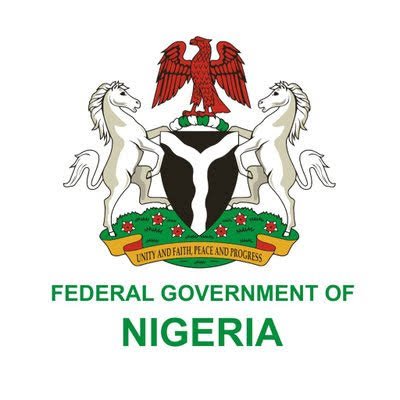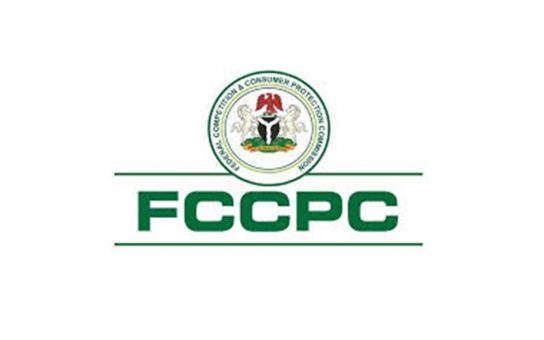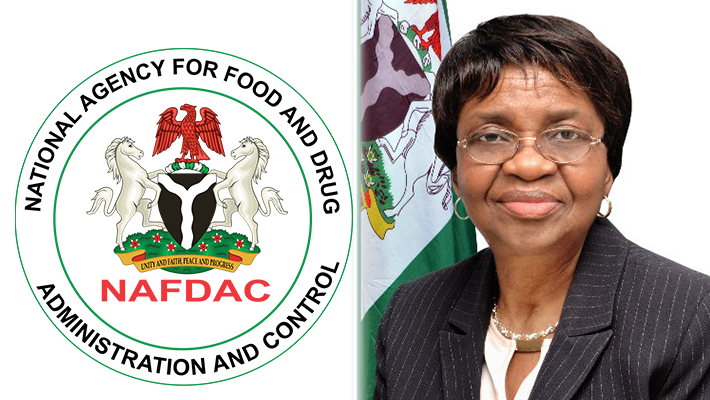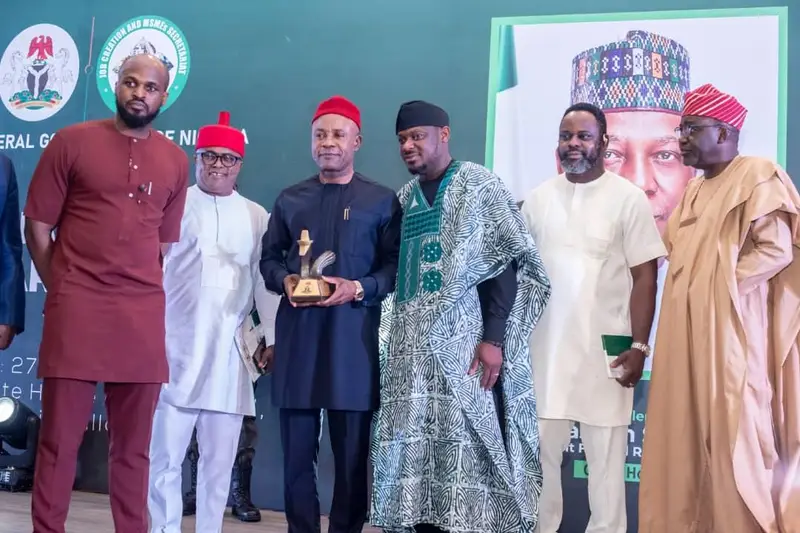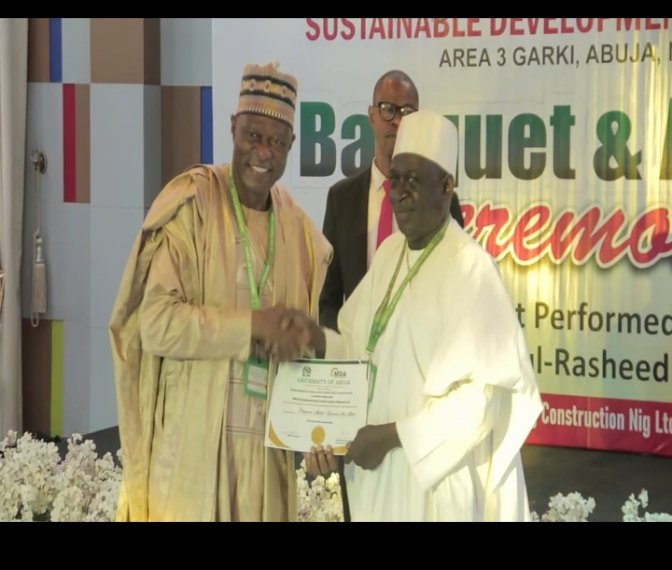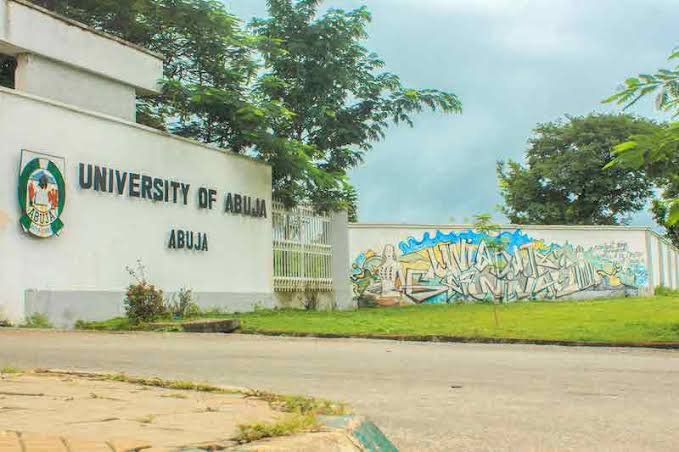230 total views today
Governor of Enugu State, Dr Peter Mbah, Sen. Ibrahim Hadejia, Deputy Chief of Staff to the President, Office of the Vice President, during the award presentation.
By Salif Atojoko
Governor of Enugu State, Dr Peter Mbah, has been conferred with a National Micro, Small and Medium Enterprises, (MSMEs) award by the Office of the Vice President on the World MSME Day for his outstandin contributions to the sub-sector in his state.
Sen. Ibrahim Hadejia, Deputy Chief of Staff to the President, Office of the Vice President, in a statement on Friday, said Mbah had impressed with his leadership capacity.
According to the statement, the award was presented to Mbah on Thursday on behalf of the Vice President during this year’s National MSME Awards held at the Presidential Villa.
“The recipient is someone my principal described as changing the leadership strategy, not only in Enugu State, but in the whole of the South East.
“Dr Peter Mbah is also one of the most IT-savvy individuals I have ever met and he is putting a lot of that experience and knowledge into governance in Enugu State.
“And he also recognises the impact that MSMEs have, not just on the labour market, but on productivity and increase in economic activities in his state.
“On behalf of the Vice President, I have the honour to present you with the MSME Award for 2024,” said Hadejia.
Mbah said the award was an elixir to do more, describing MSMEs as the lifeblood of any economic development.
He described Kashim Shettima as a champion of MSMEs, commending his tireless commitment to the Light-Up Nigeria Project, which he said would help to ramp up power supply to industrial clusters in the South East.
“Let me, on behalf of the government and people of Enugu State, express our profound gratitude to the Office of the Vice President for recognising our modest effort in supporting the growth of MSMEs in our state.
“MSMEs are the lifeblood of economic development. But as desirous as they may be, their success is no chance occurrence. They thrive only through painstaking policies that enhance the ease-of-doing-business climate.
“We believe that governments thrive when MSMEs are in good shape. So, starting a business does not have to seem like a leap of faith. Neither is it a zero-sum game, because small businesses create jobs, thus reducing the social burden typically created by huge unemployment rate,” he said.
He said from the outset, his government recognised that its goal to substantially grow Enugu State’s economy from 4.4 billion dollars to 30 billion dollars in the next four to eight years was closely-tied to the viability of MSMEs.
“These, roughly summarise the context behind the various incentives and projects we have implemented to aid the growth of small businesses through the Enugu SME Centre and Office of Digital Economy, fuelled by the commitment to upskill 40,000 youth annually in digital and vocational skills,” Mbah said.
He said his administration had equally provided one billion Naira in Venture Capital Funds under the auspices of the soon to be launched Enugu State and SMEDAN Joint Matching Funds for Nano, Micro, Small, and Medium Enterprises to boost MSMEs growth in the state.
“Our other efforts to boost MSMEs in the state include the creation of the Enugu State Fashion and Garment Hub and training of 5,000 youths on fashion skills in three years, in collaboration with the Office of the Vice-President and private sector partners.
“The Enugu Skill Acquisition Masterclass, an intensive training module that provides essential resources and insights to digital entrepreneurs and startups.
“Training of MSMEs and Startups in tech skills from software engineering, product design. Web 3 amongst others to imbue them with skills consistent with demands of the 21st century,” said the governor.
He explained that the creation of a world-class innovation and entrepreneurship hub focused on supporting entrepreneurs who tackled societal challenges.
“The Enugu NG-CARES Programme has supported over 4,000 MSMEs with operational and IT Equipment grants worth over one billion naira.
“Transforming Nigeria Youth Programme, an initiative that has supported over 7,000 women-led microenterprises with enhanced entrepreneurial skills and cash grants for business expansion.
“We are also in the process of transforming Enugu into a premier outsourcing destination, leveraging untapped infrastructure and skilled talent to emulate India’s Business Process Outsourcing and IT-Enabled Outsourcing success,” he added. (NAN) (www.nannews.ng)
Edited by Chinyere Joel-Nwokeoma






